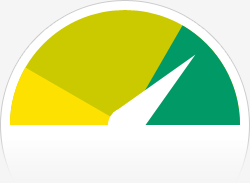College professors do a lot of writing that often goes uncounted in the various bookkeeping systems we use to tally performance in the profession. Letters of recommendation constitute one category of such hidden writing, and they can be a source of real pleasure. Recently, I wrote three sets of such letters for former students, and all three brought smiles to my face, each for very different reasons.
One student had majored in History and is applying to Ph.D. programs. Writing in support of her applications gave me an opportunity to recall not only the pleasures of working with her in courses that ranged from introductory level surveys of various periods in U.S. History and U.S. Women’s History to Senior Seminar but also a wonderful experience presenting with her at a conference focused on changing libraries. We talked about an assignment in which I had asked students to read some diaries that College Archivist and Special Collections Curator Zeph Stickney has collected and to contextualize them using class readings and books that had been digitized as part of the Harvard University Library Open Collections Program’s Women Working, 1800-1930, Collection. I described the assignment, and the student described her experiences working on it. She was the star of the conference. Other professors and librarians and academic technologists and administrators who attended were impressed with her ability to pinpoint key concerns about the online collection of sources, concerns that the librarians shared. The conference was a wonderful experience for me; I so enjoyed seeing this student shine.
Another student had majored in Women’s Studies and is applying to a Social Work program. She, too, had taken a range of courses with me, from introductory level U.S. Women’s History courses to an advanced course on Sex and Culture in the 19th-century United States. I didn’t have a conference experience to recall for this student, but I was delighted to have a moment to remember that course and her work in it. We read a lot of books in that course, and every week pairs of students led discussions. One of my favorite memories of that course was when this student and her co-leader asked their classmates to cast the movie version of a book called The Murder of Helen Jewett, a wonderfully researched and well-written narrative about a young woman from Maine who moved from a post as a domestic servant in her home state to remake herself in New York City, where she worked as a prostitute and–after she was brutally murdered–became the focus of a sensational trial in the 1830s. These were students who had been deeply affected by such movies as “Titanic” and “Gangs of New York,” so imagining this woman’s story as a film proved enormously effective for them as a learning exercise. And it was all their idea. Students are often more astute than their professors when it comes to finding ways to bring the past to life.
The final student had majored in American Studies and had worked as my research assistant on the Wheaton College Digital History Project. She is applying to Library School because it will prepare her for a profession in which she will be able to practice Digital Humanities. This student became a real colleague for me on the project. When the college awarded us funds from the Mars Foundation to take an introductory course on text encoding at the Digital Humanities Summer Institute at the University of Victoria in British Columbia, she outshone me as a student. My brain remains pretty analog in this digital world, no matter how much I might prefer otherwise. But this student had already taught herself XML. And after the course, she studied the TEI Guide to figure out the details of the “measure” element. I am over the moon knowing that this student is ready to embark on her professional career and that I can look forward to encountering her as a colleague for a long time to come.
Teaching definitely has its rewards.





You must be logged in to post a comment.